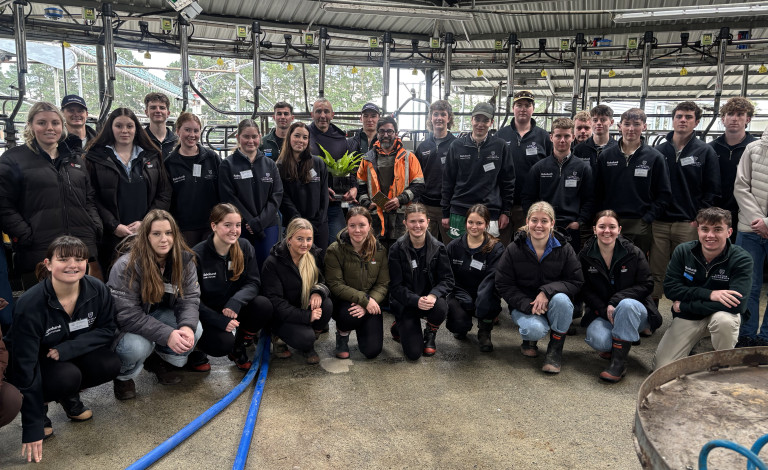Building resilience and wellbeing in the next generation of farmers
01 May 2025 | News
The WellMates programme, a mental health collaboration between researchers and wellbeing staff from Lincoln University and Massey University, has grown year-on-year, delivering an important resource to students that focuses on de-stigmatising conversations around mental health and wellbeing.
Published in The Journal of Agricultural Education and Extension, the article Wellbeing education increases skills and knowledge among tertiary students in the agricultural sector: Insights from a mixed methods study, shares the effectiveness of the WellMates face-to-face programme, and published in the Journal of Agromedicine, the article A Mixed Methods Assessment of an Online Mental Health and Resilience Program for Agricultural Sector Students, shares the success of the programme delivered online.
Researchers Dr Jorie Knook (Lincoln University), Dr Louise Winder (Lincoln University), Dr Nicky Stanley-Clarke (Massey University), Dr Chris Andrews (Massey University) and Amanda Hay (Massey University) have just completed their third year of research on mental health and wellbeing in young people in the agricultural sector, including students who participated in the WellMates programme.
The programme was initially developed by Lincoln University’s Dan Smith, Dr Winder and Dr Jackie Blunt after identifying suicides among alumni.
“We realised there was a need to normalise conversations around suicide and wellbeing so that young people understood how to seek support for themselves or others when they were feeling mentally stressed,” says Dr Winder.
First delivered to Diploma of Agriculture students face-to-face at Lincoln University in 2020, WellMates equips agricultural students destined for working in farm environments with wellbeing skills to help build resilience into adulthood.
“International studies show that young people are particularly exposed to feelings of isolation after studying. They come and live in the halls, for example, and have friends around them all the time. Then they move into employment on farm and that can be a lonely environment,” says Dr Knook.
After the success of this first programme delivery, the team introduced WellMates face-to-face at Massey University. This didn’t prove as effective, with the majority of the cohort studying via distance learning. Taking this on board, an online version of the programme was created and has since been positively received by students too.
The success of WellMates, shares Dr Knook, is in large part due to the use of peer-to-peer training.
“There is a great deal of literature supporting this type of learning, identifying how it positively changes the learning environment. When students hear these messages from respected peers, it is highly effective. Here at Lincoln, we had members of Young Farmers facilitate the programme.
“An interesting point we have discovered related to this was that peer educators need to be from the same university as the students. One year, we sent our trained students to Massey University to facilitate the WellMates programme. The feedback we received largely questioned why students from Massey were not used and cited a lack of connection between the students and facilitators as they weren’t from the same university.”
Dr Knook goes on to explain the effectiveness of peer-to-peer training is grounded in the level of rapport that can be established, and this applies to online learning as well.
“It’s about creating a safe space, and one way to build this is through language. Students know how to phrase things, so the course content is more accepted. By facilitating WellMates through peer-to-peer education, we are providing an optimum environment for students to learn coping mechanisms so if they encounter struggles during their lives, they know how to seek help.”
With surveys conducted with students to evaluate WellMates, researchers have gained an understanding of the most impactful elements of the programme: understanding who to contact if in need of mental health support and gaining the confidence to talk to a friend about mental health as well as their own.
“When we evaluated the programme, delivered both face-to-face and online, one major theme was that the programme worked better if it was reinforcing and building on existing knowledge of mental health strategies. For example, our COVID-19 cohort indicated they had discussed these topics in high school. Though WellMates is in the context of agriculture, the programme acted as a reminder of mental health strategies and continues to de-stigmatise these conversations,” says Dr Knook.
Looking to build on the knowledge acquired in delivering WellMates, the team of researchers are considering how they can expand this programme and deliver it to more young people.
“Here at Lincoln University, we’re also looking at developing a SAFEMates programme. As many students are required to complete practical work as part of their course completion, this programme would be designed to support them, in readiness for going on farm.”
For media enquiries, email media@lincoln.ac.nz


